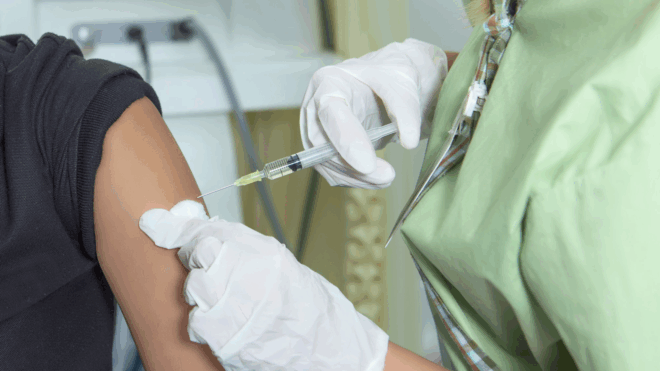During the first few weeks with your newborn, you may want to spend time cozying up in your nest and bonding. You also want to guard his or her tiny immune system against germs. Or you might feel a bit of cabin fever! So, what's the safest timeframe for bringing a baby out and about in the world? Here's what doctors and moms recommend.
Wait a Week -- Weather Permitting
"Newborns should usually not got out into public until about one week of age, with the exception of a visit to the pediatrician, which is usually at two to three days after leaving the hospital. Before a newborn goes out in public, the parents should make sure the weather is okay. If the parents would be uncomfortable in the weather outside, then the child would be as well." — Robin Jacobson, MD, pediatrician at Hassenfeld Children's Hospital at NYU Langone, New York, NY
Avoid Busy Indoor Places for Two Months
"In order to prevent newborns from getting exposed to germs and then getting sick, I prefer not to take them to indoor places with a lot of people — i.e., malls, restaurants, airports — for the first two months of life. Newborns don't have their immunizations yet, so they are more susceptible to getting sick. What might cause a mild illness in an older child or an adult could cause a much more severe illness in a newborn. Babies normally get their first full set of immunizations at about 8 weeks of age. Until this time, if they were to get sick and have a fever of 100.4 or greater, they may require hospitalization, blood tests, urine tests, and even a spinal tap to make sure that they don't have a serious infection.
"But feel free to walk your newborn outside in the fresh air if it is not too hot or cold outside! They can be anywhere where people aren't breathing on top of them too closely.
"The best way to prevent infection is good hand hygiene. Always have adult caretakers wash their hands well before touching a newborn." — Dori Anchin, MD, pediatrician at Maria Fareri Children's Hospital, a member of the Westchester Medical Center Health Network (WMCHealth), Valhalla, NY
Wait for the Shots
"I waited until the two-month shots. Call me paranoid; I don't care. But I just couldn't imagine going out before."
Pick Quiet Times & Cover the Baby
"For the first six months, I did Target runs at low-traffic times, like, 2 or 3 p.m. And if I went out, I had a full cover over my daughter."
Use a Blanket or Baby Carrier
"As long as your baby is kept away from germs as much as possible, I'd bring out baby as early as I need to. I typically lay a light blanket over the car seat stroller or have the baby in a carrier close to me. That typically deters people from getting too close."
If You're Comfortable, Go for It
"It depends on you and your baby and your comfort level. My daughter was born in the winter, and she caught a cold immediately, so I waited to take her out in public until she was feeling better. I also waited until her first round of shots had ended. I think, if you feel comfortable and your baby isn't sick, then go for it. Have a planned response for people who ask to touch or hold your baby. You can — and should — offer a polite 'no.'"
Go for Walks Right Away
"I had my baby in spring and took her out for walks right away. I just didn't let anyone get too close to her or hold her. The fresh air was so relaxing to her — and me!"
However Long You Need to Adjust
"I waited at least a month. It allowed time for me to adjust to having a new baby and get into a new routine. I felt better about it, but that's just me."
Follow the Rules
"You really don't have to wait any time as long as you follow certain rules. For example: Don't let strangers or really anyone touch the baby with washing their hands, and more importantly, dress the baby properly. My doctor said there is no reason not to take the baby out, and fresh air does everyone some good!"




